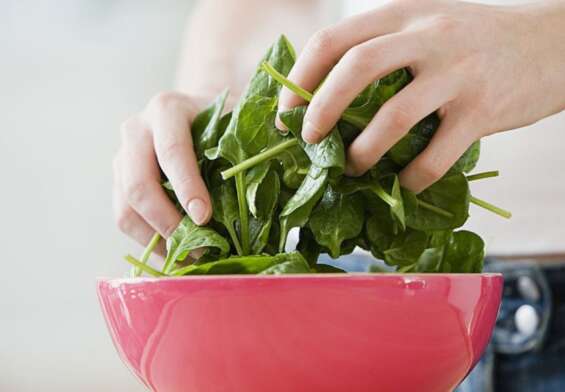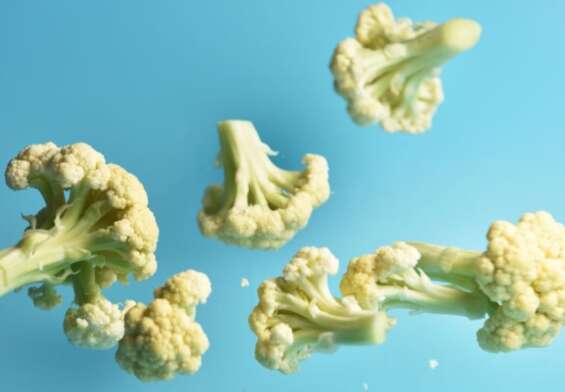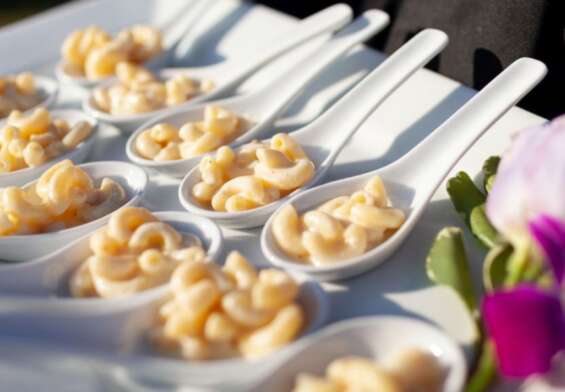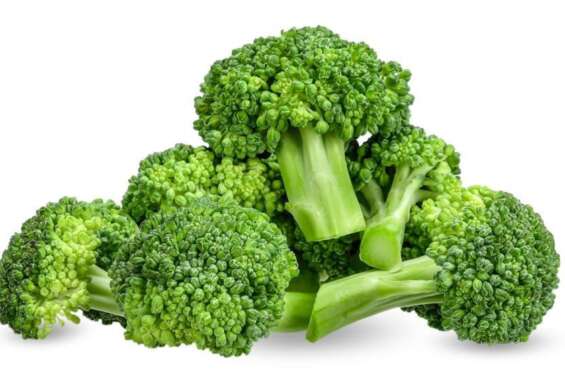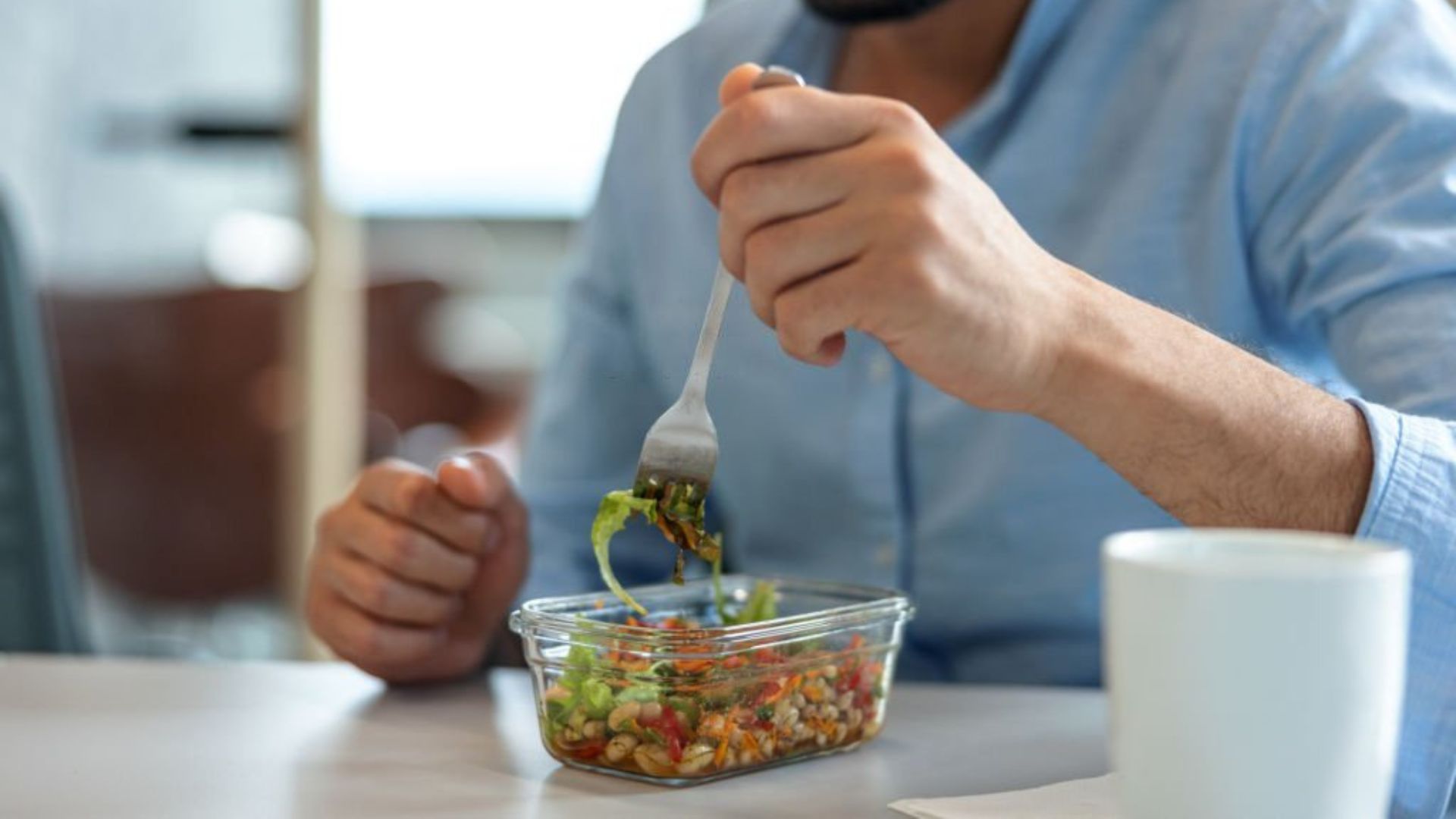
High-Protein Diet: How Much Protein Do You Really Need?
A high-protein diet is a diet that is high in protein and low in carbohydrates. It is often used to help people lose weight and improve their overall health. It can also be used to build muscle, increase energy levels, and improve overall health. High-protein diets are popular because they can help people feel fuller for longer periods of time, which can help reduce hunger and cravings. They can also help people reach their fitness and health goals more quickly. There are many benefits to high-protein diets, but it is important to understand the potential risks and ensure you are following the diet in a safe and healthy way.
What Are the Benefits of a High-Protein Diet?
If you’re considering a high-protein diet, you’re in for a real treat! Not only can it help you to achieve your fitness goals, but it can also provide some unexpected benefits. Here are some of the great things you could experience on a high-protein diet:
You’ll get to eat more bacon! Yes, that’s right. Bacon is packed with protein and is certainly a tasty treat. And if you’re feeling extra adventurous, you can even try bacon-flavored protein shakes.
You’ll have much better hair days. Protein is essential for strong, healthy hair, so if you’re looking to give your locks some love, high-protein diets are the way to go.
You’ll get to eat more eggs. Eggs are an excellent source of protein and can make for a delicious meal any time of day. You’ll never get bored of them!
You’ll get to show off your new six-pack. High-protein diets can help you build lean muscle mass, allowing you to achieve the toned physique you’ve always wanted.
You’ll have more energy. Protein helps to boost your metabolism and provides you with more energy throughout the day.
So, what are you waiting for? If you’re looking to get fit and feel great, a high-protein diet is definitely the way to go!
The Risks of Eating Too Much Protein
Are you an avid protein lover? Do you love eating protein-packed meals and snacks? If so, you might want to watch out for the potential risks of eating too much protein!
First off, let’s look at the obvious: eating too much protein can lead to weight gain. Protein is quite calorie-dense, so if you’re eating more protein than your body needs, you’re likely to put on some extra pounds. Of course, if your goal is to bulk up, then you’ll be happy about the weight gain, but if you’re trying to trim down, then this might be a problem.
Another issue with eating too much protein is that it can throw off your electrolyte balance. This is because when your body digests protein, it releases certain compounds that can affect your body’s pH levels and fluid balance. If your electrolyte balance is thrown off, you can become dehydrated, leading to headaches, fatigue, and other unpleasant symptoms.
Finally, eating too much protein can put extra strain on your kidneys. This is because your kidneys have to work harder to filter out all the extra protein, which can lead to dehydration and other issues. If you have pre-existing kidney issues, then this can be an even bigger problem, so it’s best to consult your doctor before drastically increasing your protein intake.
So there you have it – the risks of eating too much protein. So if you love your protein, make sure to keep your intake in check, or else you might end up in a pickle!
How to Build a Healthy High-Protein Meal Plan
If you’re looking to build a healthy high-protein meal plan, you’re in luck! It’s easier than ever to get the right foods into your diet to keep your energy levels up and your muscles strong. Here’s our guide to constructing the perfect meal plan for your health and fitness needs.
First, figure out your macronutrient needs. Macronutrients are the three essential nutrients that provide energy for your body: protein, carbohydrates, and fat. You’ll need to figure out how much of each macronutrient you need per day to meet your fitness goals. For example, if you’re looking to build muscle, you’ll need more protein than someone who is trying to lose fat.
Next, choose your protein sources. Protein is an essential part of any healthy meal plan, so you’ll want to make sure you’re getting enough of it. Lean meats like chicken, turkey, and fish are great sources of protein. Plant-based proteins like beans, nuts, and quinoa are also healthy choices.
Third, add some carbohydrates to your meals. Carbohydrates are an important source of energy and can help you feel fuller for longer. Whole grains like oats, brown rice, and quinoa are great sources of complex carbohydrates. You can also add some fruits and vegetables to your meals for a dose of healthy carbs.
Finally, don’t forget the good fats. Healthy fats like avocados, nuts, and olive oil are essential for a balanced diet. Adding a small amount of fat to your meals will help keep you feeling full and provide essential nutrients.
Now that you know how to build a healthy high-protein meal plan, you can start creating your own meals. Just remember to include a variety of nutritious foods and to make sure you’re getting the right amount of each macronutrient. With a little bit of planning, you’ll be on your way to a healthier and stronger body in no time!
The Best Sources of Protein for a High-Protein Diet
For those looking to get a little protein-packed punch into their diets, we have some suggestions that will help you reach your goals and make your taste buds happy.
Greek Yogurt: This creamy and delicious treat packs a whopping 20 grams of protein per serving and is low in carbs, making it the perfect snack or breakfast.
Nuts: Nuts are a great source of protein and healthy fats, with a handful of almonds containing around 6 grams of protein.
Protein Powder: Protein powder is a convenient way to up your protein intake. Just mix it into a smoothie or shake and you’re good to go!
Tofu: Tofu is a great plant-based source of protein and can be easily incorporated into meals like stir-fries, scrambles, and salads.
Lentils: Lentils are a great source of protein, fiber, and other essential vitamins and minerals. They’re also incredibly versatile, making them perfect for soups, stews, and salads.
Eggs: Eggs are an incredibly versatile source of protein and are full of essential vitamins and minerals. They’re great in omelets, scrambles, and even hard-boiled as a snack.
Protein Bars: Protein bars are a great way to get a quick boost of protein on the go. Just watch out for sugar content as some can be surprisingly high.
These are just a few of the many sources of protein available, so go ahead and experiment to find the ones that work best for you. Happy eating!
How to Incorporate High-Protein Foods into Your Diet
If you’re looking for ways to incorporate high-protein foods into your diet, then you’re in luck! Here are some creative and humorous ways you can get your daily dose of protein:
Make a protein-packed smoothie. Blend together your favorite fruits, a handful of nuts, a scoop of protein powder, and some almond milk to make a creamy and nutritious smoothie!
Try a new twist on scrambled eggs. Add some cooked quinoa or crumbled tofu to your traditional scrambled eggs for a protein boost.
Make a protein-filled salad. Top your favorite greens with grilled chicken, hard-boiled eggs, or beans for a protein-packed meal.
Have a peanut butter and jelly sandwich. Spread some natural peanut butter on your favorite whole wheat bread and top it with some jelly for a tasty and healthy snack.
Go for a protein-filled snack. Nuts, seeds, and Greek yogurt are all great sources of protein and make for a tasty snack.
Try some protein-packed pancakes. Add some protein powder to your favorite pancake mix for an extra boost of protein.
Get creative with tofu. Tofu is a great source of protein and can be used in a variety of dishes. Try marinating it, stir-frying it, or baking it for a delicious way to get your protein.
By incorporating these protein-packed foods into your diet, you can make sure you’re getting all the protein you need. So get creative, have fun, and enjoy your protein-packed meals!
What to Avoid When Following a High-Protein Diet
When following a high-protein diet, it’s important to remember that there are some things you should definitely avoid. Here are a few to keep in mind:
Don’t put protein powder in your morning latte. Sure, it might seem like a good idea, but it’s really just a waste of a perfectly good cup of coffee.
Avoid protein bars at all costs. Sure, they might be convenient, but they’re usually loaded with sugar and other unhealthy ingredients.
Don’t try to go “all-protein” with your meals. Eating only protein is a surefire way to become protein-logged and miss out on some essential nutrients.
Don’t forget to drink enough water. When you’re eating a lot of protein, it’s important to stay hydrated to help flush out your system.
And lastly, don’t forget to laugh! A high-protein diet can be tough, but having a good sense of humor can make it a lot easier.
How to Calculate Your Ideal Daily Protein Intake
Are you trying to figure out how much protein you should be consuming every day? Well, you’re in luck! Calculating your ideal daily protein intake is as easy as 1-2-3… sort of!
First, you’ll need to figure out your body mass index (BMI). This is the measure of your body fat based on your height and weight. You can use an online calculator to help you determine your BMI.
Once you’ve figured out your BMI, you’ll need to multiply it by your body weight in pounds and then divide that number by two. This will give you your ideal daily protein intake.
But wait—there’s more! To make sure you’re getting the maximum benefit from your protein, you should also consider what type of activity you’ll be doing that day. If you’re lifting weights or doing any other type of strenuous physical activity, you’ll need to add an extra 10-15 grams of protein to your daily intake.
For the truly health-conscious among us, you can also add a few extra grams of protein to your daily intake if you’re trying to lose weight. Just remember, more isn’t always better!
So, there you have it! Calculating your ideal daily protein intake is as easy as 1-2-3… and a few extra calculations if you want to get really precise. Good luck!
How to Maintain a Balanced Diet While Eating High-Protein Foods
It’s no secret that if you want to build muscle, you need to be eating high-protein foods. But how do you make sure you’re getting a balanced diet while doing so? Well, luckily for you, we’ve got some tips for maintaining a balanced diet while eating high-protein foods.
Think Outside the Box: Eating the same types of high-protein foods can get boring quickly. To keep things interesting, try to switch it up with different types of proteins. For example, if you usually eat chicken for dinner, try some salmon, tofu, or even tempeh instead.
Don’t Forget the Veggies: Eating high-protein foods can make it easy to forget about getting your daily recommended servings of fruits and vegetables. Make sure to include a serving or two of veggies with each meal.
Balance Out With Carbs: Eating high-protein foods can make it easy to forget about carbs. But don’t forget that carbs are your body’s primary source of energy and are essential for muscle building. So, make sure to include some complex carbohydrates, such as whole grain breads and pastas, in your diet to balance out the protein.
Don’t Forget Your Fats: Fats are essential for keeping your energy levels up and providing your body with essential fatty acids. So, make sure to include some healthy fats in your diet, such as olive oil, nuts, and avocados.
Get Creative: Eating high-protein foods doesn’t have to be boring. Get creative with the way you prepare your meals and the ingredients you use. Try different seasonings, spices, and marinades to add some flavor and excitement to your meals.
By following these tips, you can easily maintain a balanced diet while still getting enough protein to fuel your workouts. So, get out there and start eating your way to gains!
How to Get Enough Protein on a Vegetarian Diet
Are you a vegetarian who’s worried about getting enough protein in your diet? Don’t worry – there are plenty of delicious, protein-rich vegetarian dishes that you can enjoy! Here are a few tips for getting enough protein on a vegetarian diet:
- Start your day with a protein-packed breakfast. Try a tofu scramble with spinach and bell peppers, or a veggie omelet with black beans.
- Snack on nuts and seeds. These are great sources of protein and healthy fats.
- Include legumes in your meals. Lentils, beans, and chickpeas are all excellent sources of protein.
- Enjoy a protein-rich smoothie. Try blending almond milk, banana, chia seeds, and a scoop of your favorite vegan protein powder.
- Have fun with tempeh. This delicious soy-based product is a great source of protein and can be used in a variety of recipes, from tacos to stir-fries.
- Make sure you get enough seitan. This wheat-based meat alternative is packed with protein, and can be used in a variety of dishes.
- Get creative with nutritional yeast. This cheesy-tasting ingredient is a great source of protein and B vitamins.
- Don’t forget tofu! Tofu is a versatile, protein-rich ingredient that can be used in stir-fries, soups, and more.
So don’t worry – there are plenty of delicious and protein-packed vegetarian dishes out there for you to enjoy! Bon appetite!
What Are Some Healthy High-Protein Snacks?
Hard-Boiled Egg-cellent: Boil a dozen eggs and you’ve got yourself a week’s worth of protein-packed snacks. Just don’t make the rookie mistake of boiling them for too long, or you’ll have a dozen hard-boiled disasters on your hands!
Nuts for Nuts: It’s a no-brainer. Nuts are loaded with protein, and they’re easy to carry around and munch on wherever you go. Plus, they’re tasty and come in a wide variety of flavors and textures. So go nuts!
Cheese Please: Who doesn’t love cheese? Whether it’s a slice of cheddar, a string cheese, or a handful of feta, cheese is a great snack that packs in plenty of protein. Just try not to get too cheesy with it.
Power-Up with Popcorn: Popcorn is a surprisingly high-protein snack. Just skip the butter and opt for an air-popped version instead. Now you can enjoy your snacks while powering up your body!
Greek Yogurt to the Rescue: Greek yogurt is full of protein and can be customized with whatever toppings you prefer. It’s a great snack for anytime of the day and is sure to satisfy your cravings.
How to Deal with Protein Deficiencies While on a High-Protein Diet
If you’re trying to get in shape and decided to go on a high-protein diet, you might be dealing with some protein deficiencies. Don’t worry – there are plenty of ways to make sure you’re getting enough of this essential nutrient! Here are a few top tips for dealing with protein deficiencies while on a high-protein diet.
Snack Wisely – Snacking can be an essential part of a high-protein diet, but make sure you’re choosing snacks that are also high in protein. Hard-boiled eggs, edamame, and Greek yogurt are all great choices.
Add a Protein Powder – If you’re still having trouble getting enough protein, try adding a scoop of protein powder to your smoothie or oatmeal. This is an easy way to get a few extra grams of protein without having to eat a ton of food.
Have a Protein-Rich Breakfast – Make sure you’re starting your day off right with a breakfast that’s full of protein. A breakfast burrito, egg scramble, or protein overnight oats are all great choices.
Make Protein-Packed Meals – When it comes to lunch and dinner, make sure you’re packing in the protein. Chicken, fish, and tofu are all great sources of protein, and can be incorporated into stir-frys, salads, and soups.
Don’t Forget the Veggies – Make sure you’re eating plenty of vegetables with your meals. They are often overlooked as a source of protein, but they can be a great way to get a bit of extra protein without having to increase your intake of animal products.
With these tips, you’ll be on your way to getting plenty of protein while on a high-protein diet. So don’t worry – you don’t have to suffer through protein deficiencies anymore!
Conclusion
In conclusion, a high-protein diet can be a beneficial way to reduce body fat and improve overall health and fitness. It can also help to increase muscle mass and strength. However, it is important to be aware of the potential side effects of a high-protein diet such as increased risk of kidney stones, dehydration and constipation. If you are considering a high-protein diet, it is important to consult a healthcare professional to ensure you are getting the right amount of nutrition and protein for your individual needs.





